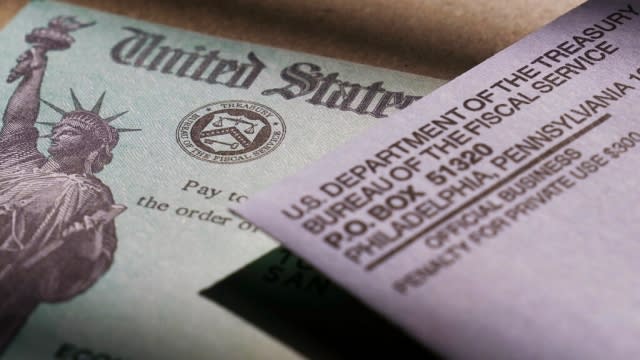IRS says taxpayers are getting scam emails about stimulus checks

The Internal Revenue Service said it is seeing several new and recurring scams popping up, including one that is suggesting the IRS is sending out another round of stimulus checks.
According to the IRS, messages with the subject line "Third Round of Economic Impact Payments Status Available" are entering a number of taxpayers' inboxes. The IRS said it has gotten thousands of reports of these emails coming in since July 4.
The IRS never initiates contact with taxpayers through email, text or social media about bills or refunds, according to the agency.
The IRS noted that the third round of Economic Impact Payments was sent in 2021, more than two years ago. The IRS said this scam is being used to harvest valuable personal information. One such message included:
"Dear Tax Payer, We hope this message finds you well. We are writing to inform you abount an important matter regarding your recent tax return filing. Our record indicate that we have received your tax return for the fiscal inconsistencies or missing information that require your attention and clarification. You will receive a tax refund of $976.00 , We will process this amount once you have submitted the document we need for the steps to claim your tax refund.
Sender : INTERNAL REVENUE SERVICE"
The IRS noted the email included a number of spelling errors and factual inaccuracies.
SEE MORE: How to protect yourself from AI voice scams
There has also been an increase in false Employee Retention Credit claims, the IRS said. The IRS said scammers are contacting taxpayers through email, standard mail and phone calls, making false claims about the pandemic-related credit that only some select employers qualify for.
The IRS said that scam promoters are trying to lure people into signing up for the credit, and tacking on up-front fees. But the IRS noted that those who improperly claim an Employee Retention Credit are obligated to pay it back, and could have interest and penalties added.
"The IRS is seeing a wave of these summer scams relentlessly pounding taxpayers," said IRS Commissioner Danny Werfel. "People are being flooded with these email and text messages, but we want them to avoid getting swept up in these terrible scams. Taxpayers should be wary; remember, don't click on links from questionable sources."
A full list of the scams to be wary of are available on the IRS' website.
